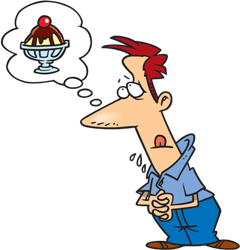VERBS WITH STATIVE AND DYNAMIC USES

Verbs in English can be classified into two categories: stative verbs and dynamic verbs. Dynamic verbs (sometimes referred to as "action verbs") usually describe actions we can take, or things that happen; stative verbs usually refer to a state or condition which is not changing or likely to change. The difference is important, because stative verbs cannot normally be used in the continuous (BE + ING) forms. This will explain the differences between the two types of verb, and give lots of examples of each kind.
Dynamic verbs
There are many types of dynamic verbs, but most of them describe activities or events which can begin and finish. Here are some examples:
| Dynamic Verb | Type | Examples |
|---|---|---|
| play | activity | She plays tennis every Friday. She's playing tennis right now. |
| melt | process | The snow melts every spring. The snow is melting right now |
| hit | momentary action | When one boxer hits another, brain damage can result. (This suggests only ONE punch.) When one boxer is hitting another, brain damage can result. (This suggests MANY repeated punches.) |
Dynamic verbs, as you can see from the table above, can be used in the simple and perfect forms (plays, played, has played, had played) as well as the continuous or progressive forms (is playing, was playing, has been playing, had been playing).
"Dynamic" is an adjective which means something is moving or changing.
In English grammar a "dynamic verb" means that the verb describes an action rather than a state. Dynamic verbs are sometimes known as "action verbs."
"Dynamic" is an adjective which means something is moving or changing.
In English grammar a "dynamic verb" means that the verb describes an action rather than a state. Dynamic verbs are sometimes known as "action verbs."
"Joe is chasing the bus."


Stative verbs
Stative verbs usually refer to a state or condition which is quite static or unchanging. They can be divided into verbs of perception or cognition (which refer to things in the mind), or verbs of relation (which describe the relationships between things). Here are some examples:
| Stative Verb | Type | Examples |
|---|---|---|
| hate | perception | I hate chocolate. |
| believe | perception | She believes in UFOs. |
| contain | relation | The box contains 24 cans of soda. |
| own | relation | Yong owns three motorbikes. |
Note that we CANNOT use these verbs in the continuous (progressive) forms; you CAN'T say "*Yong is owning three cars." Owning is a state, not an action, so it is always in the simple form.
"Stative" is an adjective which describes something as having a state, or existing (this is a very uncommon adjective).
In English grammar a "stative verb" means that the verb describes a staterather than an action.
Stative verbs are sometimes known as "state verbs."
"Kevin wants some ice-cream."

Example verbs

Here some common stative and dynamic verbs. The lists may help you to understand what types of verbs are likely to be stative and what types are commonly dynamic.
| Stative Verbs | love; hate; like; see; hear; sound; think (meaning "have an opinion"); mind (meaning "care about"); recognize; seem; have (meaning "own"); prefer; doubt; consist of; mean |
|---|---|
| Dynamic Verbs | eat; drink; go; type; read; write; listen; speak; watch; say; grow; work; sleep; cook; talk |
Dynamic verbs, as you can see from the table above, can be used in the simple and perfect forms (plays, played, has played, had played) as well as the continuous or progressive forms (is playing, was playing, has been playing, had been playing).
Exercices
- change
- stative
- dynamic
- read
- stative
- dynamic
- remember
- stative
- dynamic
- seem
- stative
- dynamic
- want
- stative
- dynamic



No hay comentarios:
Publicar un comentario